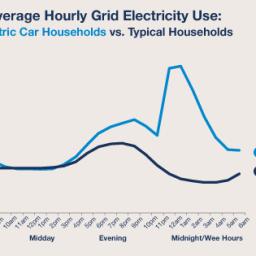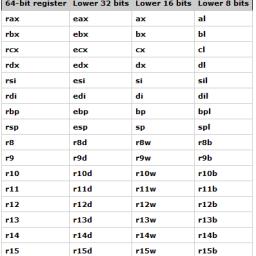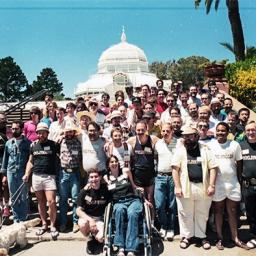If you're using
TAILS, or just interested in the technology, or even thinking about getting on board, here is some good news for you:
the TAILS has opened an official public mailing list with archives. You can find the new mailing lists at
tails-project@boum.org, which is a public, archived mailing-list to talk about the non-technical decisions regarding the project. In addition the page mentions two other new mailing lists, but they are not aimed directly at TAILS users, but for promotion and web/soft/UI. Click on the "mailing list" [1] link to browse the TAILS USERS Mailing List archives.
More here:
https://mailman.boum.org/listinfo/tails-project By day:
By day: electric vehicles are taking the world by storm: their sales are doubling every year, their fuel efficiency is off the charts, and some of them can even accelerate from 0-60 mph about as fast as you can say Elon Musk.
By night: the electric vehicle (EV) community continues to make waves. While you are in bed dreaming about how some day you too might own an electric car, many EV owners are doing something dramatic; something unusual; something that is reshaping the energy landscape.
They are using gobs of electricity.Read on for some great statistics and graphs. Check out the consumption spike that occurs after dinner.

Techcrunch is onto a mystery that should be no surprise to anyone who uses these things on a daily basis:
tablet sales are waning, while sales of computers are actually rebounding. Author and former CIO Peter Yared has the solution:
Businesses Need Super Tablets.
As the former CIO at CBS Interactive, I would have bought such super tablets in droves for our employees, the vast majority of whom primarily use only a web browser and Microsoft Office. There will of course always be power users such as developers and video editors that require a full-fledged PC. A souped-up tablet would indeed garner corporate sales, as Tim Cook would like for the iPad " but only at the expense of MacBooks.
The cost of managing PCs in an enterprise are enormous, with Gartner estimating that the total cost of ownership for a notebook computer can be as high as $9,000. PCs are expensive, prone to failure, easy to break and magnets for viruses and malware. After just a bit of use, many PCs are susceptible to constant freezes and crashes.
What say the Pipedot faithful: Is this just a twist in the business cycle? Would a super-tablet convince you to dust off the credit card? Or is TechCrunch just grasping at straws?
I personally have to manage upwards of 180 passwords on a regular basis and lots of folks deal with more than that. Sure, you can simplify by reusing passwords, but common sense says that's a bad idea. But better systems inevitable require you manage them in a password app or equivalent, which opens another vulnerability, as cracking that data store can net a crook your entire password collection. Clearly, there's progress to be made here.
The reported theft of 1.2 billion email passwords by Russian hackers earlier this month was just the latest in a long string of major password security breaches that have led some people to wonder if the use of passwords should be abandoned.
But given recent breaches of systems and so on, the BBC is asking the inevitable question, which is
has the flawed password system finally reached its end, and if so, what will replace it? Check out their review of alternatives, including digital portraits, voice recognition, and more.
What about Pipedotters: how do you manage your passwords, and which direction makes sense for this not-evolving-fast-enough technology?

We're getting there, slowly. There's a new range of smartwatch in town, and they're getting better and more attractive. In the words of the Motley Fool financial blog,
Samsung and LG have upped the ante on smartwatches.
Here's Samsung's new Gear S:
Their latest watch is the Samsung Gear S, and it's one of the only smartwatches on the market that sports 3G connectivity. This allows it to function on its own without having to be forever tethered to a smartphone to access notifications and other content.
The other unique feature of the Gear S is its 2" curved OLED display with a resolution of 320x480. Samsung believes that a convex display allows for a more ergonomic and comfortable smartwatch. With its curved rectangular display the form factor of the Gear S is like a cross between fitness bands and smartwatches.
LG has released a new one too, and it's round and surprisingly traditional looking.
The G Watch R's circular touchscreen measures 1.3 inches versus the G Watch's rectangular 1.65-inch screen. The G Watch R's display has a higher resolution (320 i- 320 pixels) compared with the G Watch's (280 i- 280 pixels). That means images viewed on the G Watch R should look much sharper than those viewed on the standard G Watch. The G Watch R also uses plastic OLED display technology rather than the LCD technology used with the G Watch. As a result, LG says, the G Watch R will be easier to read in direct sunlight.
With so many models and so many new features, and yet so many missing features, the tech press is already jaded. Check out TechRadar,
who asks, "Does anybody even care anymore?" while simultaneously admitting, err,
they do.
[Ed. note: I'm definitely in the market, and they're getting closer to making me reach for my wallet!]
Hoping we'll do two short polls again this week. Here's the first one:
We're doing lots of articles focusing on computer science, hardware, gadgets, software, but there's room for growth in the sciences. But which ones?
This is a borda poll, so number the fields in your preference, where 1 is the scientific field you'd be most likely to click on, and 10 is the field you'd be least likely. We'll see which fields float to the top, and you'll likely see more articles from those fields in the future (unless you choose numerology, in which case I'm outta here). I've got 250+ feeds in my RSS reader now. Let's see whose articles are going to make it into the fabric of Pipedot!
The poll is on the right side of the home page. Happy clicking!

If you're interested in understanding how the 64 bit processor works by programming for it, have a look at the
"Code as Art" blog (0xax.blogspot.com), where a guy recounts his experiences learning to program in 64 bit assembly.
section .data
msg db "hello, world!"
section .text
global _start
_start:
mov rax, 1
mov rdi, 1
mov rsi, msg
mov rdx, 13
syscall
mov rax, 60
mov rdi, 0
syscall
So we know that sys_write syscall takes three arguments and has number one in syscall table. Let's look again to our hello world implementation. We put 1 to rax register, it means that we will use sys_write system call. In next line we put 1 to rdi register, it will be first argument of sys_write, 1 - standard output. Than we store pointer to msg at rsi register, it will be second buf argument for sys_write. And than we pass the last (third) parameter (length of string) to rdx, it will be third argument of sys_write. Now we have all arguments of sys_write and we can call it with syscall function at 11 line. Ok, we printed "Hello world" string, now need to do correctly exit from program. We pass 60 to rax register, 60 is a number of exit syscall. And pass also 0 to rdi register, it will be error code, so with 0 our program must exit successfully. That's all for "Hello world". Quite simple :)

Slate is running an interesting piece called
"The First Gay Space on the Internet". But it's only marginally about homosexuality; it's really a look at how people use the Internet to meet, exchange opinions, and discuss things of interest. And that makes it relevant even today.
Many newsgroups were purely informational, useful for technical discussions or sharing of news or jokes or porn. But soc.motss was genuinely a new kind of community, a diverse set of people who felt at home and most like themselves on the Net, and who had discussions there that they couldn't have anywhere else. Before Facebook preferred status updates to long posts and Twitter reduced the size of a rebuttal to 140 characters, soc.motss proved that online discourse was indeed compatible with open-mindedness, subtlety, and civility.
The article goes back to a time when bandwidth was limited and expensive, and people took a long time to compose and write down their thoughts before posting. It points out early newsreaders were unthreaded, so any newsgroup was bound to have more readers than contributors. The Internet has come a long way from then, but the long, written form is in decline, and quick, heat-of-the-moment posts or diatribes are more the norm.
If you agree, click the "like" button and then move on.
After many years of experimentation, Google has finally decided to
abandon its tracking of authorship. Authorship was potentially useful but a bit of a hassle to implement. First you had to create a Google profile, then somewhere, like in the footer of your blog or equivalent, you needed a hyperlink to that profile. Thirdly, in your Google profile, you had to provide a list of sites where you were an author. When you'd jumped through those hoops, you'd be rewarded with a little picture of yourself next to Google search results linked to your site.
About a year ago, they decided to reduce the number of results that showed an image to only the biggest guns or some, select searches. And now they've decided it wasn't providing much value at all, and have ditched it. From John Mueller's G+ post:
Unfortunately, we've also observed that this information isn't as useful to our users as we'd hoped, and can even distract from those results. With this in mind, we've made the difficult decision to stop showing authorship in search results.
(If you're curious -- in our tests, removing authorship generally does not seem to reduce traffic to sites. Nor does it increase clicks on ads. We make these kinds of changes to improve our users' experience.)
Sayonara, authorship! Webmasters had fun jumping through the endless hoops of clawing ourselves up the slope of Search Engine Optimization anyway!





